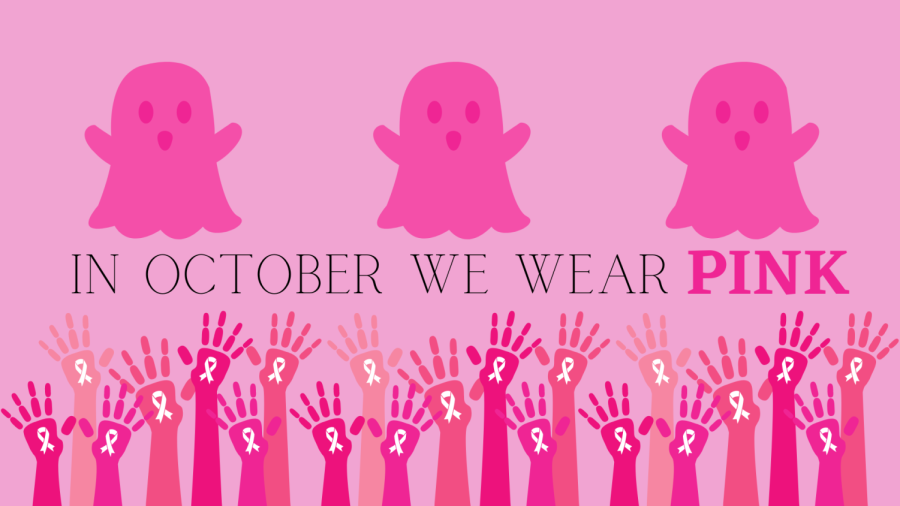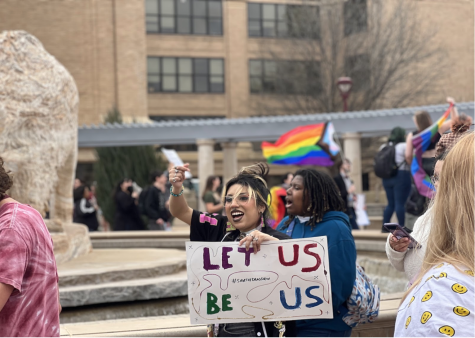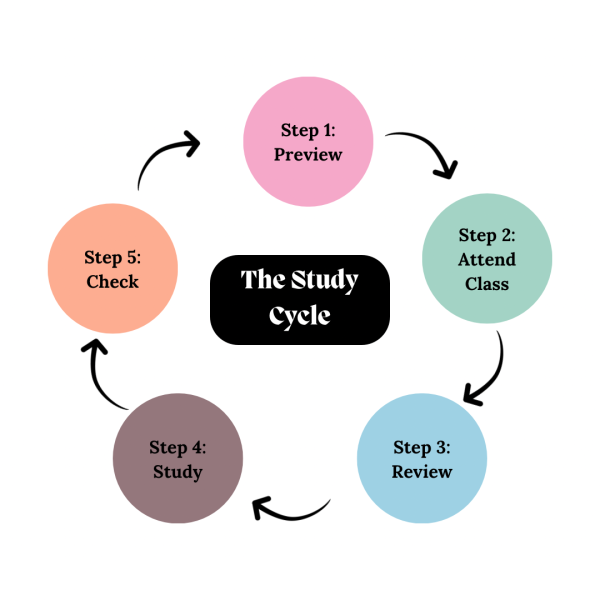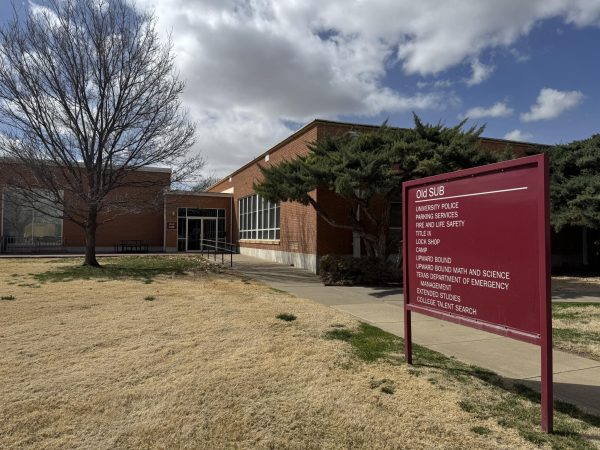Breast Cancer: a developing vaccine
Wearing the color pink throughout October raises awareness to Breast Cancer.
In commemoration of Oct., the United States celebrates Breast Cancer awareness, where we rise against the infectious disease in the hope of developing a cure someday.
Breast cancer has several different kinds of cancer, but it is a disease in which cells in the breast grow out of control. Cancer begins in other breast parts and metastasis through blood and lymph vessels. The two most common forms of breast cancer include invasive ductal carcinoma and invasive lobular carcinoma. Invasive ductal carcinoma begins in the ducts, while invasive lobular carcinoma begins in the lobules and grows outside the breast tissue and other body parts.
As there is no cure for breast cancer, researchers have evolved vaccines to fight off cancer. Breast cancer is commonly treated through chemotherapy, hormone therapy or radiation. Chemotherapy uses cytotoxic drugs, which means they can kill tumor cells. Hormone therapy removes, blocks or adds specific hormones to the body to suppress the growing cancerous cells. Radiation uses high doses of radiation to kill cancer cells and shrink tumors.
The awareness around breast cancer has immensely grown over the years. The National Breast Cancer Foundation has put together a calendar for Oct. to raise awareness and rise for the cause. The calendar follows a daily schedule with different events and resources. For example, week one provides resources to become educated, week two follows ways to demonstrate empowerment, week three gives examples of how to take action, week four furnishes building a community and week five celebrates hope.
On Oct. 26, 2021, the Cleveland Clinic in Ohio opened a new study for a vaccine to eventually prevent triple-negative breast cancer, the most aggressive and lethal form of the disease.
A phase I trial was designed to determine the maximum tolerated dose of the vaccine in patients in the early stage of triple-negative breast cancer to optimize the body’s immune response. Considering the vaccine underwent an application, the Food and Drug Administration approved the Cleveland Clinic to part with Anixa Biosciences, a facility that focuses on developing therapies and vaccines.
“We are hopeful that this research will lead to more advanced trials to determine the effectiveness of the vaccine against this highly aggressive type of breast cancer,” said G. Thomas Budd, M.D., of Cleveland Clinic. “Long term, we hope this can be a true preventive vaccine that would be administered to healthy women to prevent them from developing triple-negative breast cancer, the form of breast cancer for which we have the least effective treatments.”
Beginning the road of developing breast cancer vaccines, researchers started with a triple-negative breast cancer focus due to the response the disease has to specific hormones and other therapies. According to the Cleveland Clinic, this form of breast cancer is more likely to occur, “approximately 70% to 80% of the breast tumors that occur in women with mutations in the BRCA1 genes are triple-negative breast cancer.”
With the vaccine still in the clinical trial stage, a new study at the Cleveland Clinic will include 18 to 24 patients who have completed early-stage triple-negative breast cancer treatment.
“During the study, participants will receive three vaccinations, each two weeks apart and will be closely monitored for side effects and immune response,” said Dr. Budd. “The study is estimated to be completed by the end of 2022.”
Researchers anticipate that the trial will succeed as the vaccine continues to undergo tests and develop into a viable treatment. Once establishing an applicable vaccine, the goal is to have women carrying mutations in either the BRCA1 or BRCA2 gene undergo a voluntary bilateral mastectomy to lower their risk of developing breast cancer.
Although several forms of cancer are obscure, beginning the development of vaccines and medicine to hopefully reduce the risk, fight the infection or terminate the possibility of obtaining the disease is incredible.
Hopefully, all forms of cancer and other diseases will be cured one day, but as researchers currently focus on fighting breast cancer, we can continue raising awareness. For more information regarding breast cancer, visit the American Cancer Society.












